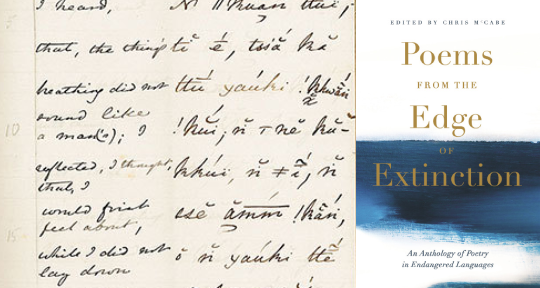This winter, festivals and events across the globe introduce new literature in translation, while literary magazines and film festival screenings amplify underrepresented voices. In Slovakia, recent works explore sexual identity, the weight of twentieth-century history, and trauma. From Palestine, Arablit and Arablit Quarterly launched its first “In Focus” section, spotlighting Iraqi literature. In Kazakhstan, the film Akyn highlights the political power of writing, acquiring greater significance in the context of recent governmental restrictions on free speech. Read on to find out more!
Julia Sherwood, Editor-at-Large, reporting on Slovakia
In October 2021, Barbora Hrínová was declared the winner of Slovakia’s most prestigious literary prize, the Anasoft Litera. The jury praised her remarkable debut collection Jednorožce (Unicorns) for writing “about otherness without exoticizing or exploiting it, thus enabling us to accept different ways of life or the search for identity.” As the author herself put in a recent interview: “Otherness in Unicorns occurs on two levels; one is literal, where the characters from the LGBTI+ community belong by definition, and the other is universal, all-human; after all, every person is a minority in their own right. I didn’t want to emphasize the element of sexual identity or outward difference in the characters, because I think that such people are part of everyday life and no different from the majority in any essential way. Rather, I was interested in and irritated by the way they are perceived by society, which often reacts very dismissively and critically to even a minor deviation from the norm. I wanted to create a space in the stories where we could also look at the ‘different characters,’ or a variety of shortcomings in a somewhat more human way.” The fact that Hrínová’s collection also won the 2021 René Prize, chosen by secondary school students, testifies to the author’s empathetic handling of a sensitive subject.
November 2021 marked the centennial of the passing of Slovakia’s national poet, Pavol Országh Hviezdoslav. This brief video, recorded for the Slovak consulate in New York City by Columbia University professor Christopher W. Harwood, is a great primer for anyone not familiar with Hviezdoslav’s work. Literature scholar Charles Sabatos gave a captivating Zoom talk on Gejza Vámoš (1901–1956), another Slovak writer not yet widely known in the English-speaking world. Sabatos, who is translating Vámos’s seminal Atómy boha (God’s Atoms), published in 1928 and 1933, focused on issues of language and identity in this book, summed up by one critic as “a novel of heroism and syphilis.”
While this translation awaits publication, two recent works by contemporary Slovak writers appeared in October, inaugurating Seagull Books‘s Slovak list: Boat Number Five by Monika Kompaníková (translated by Janet Livingstone) and Necklace/Choker by Jana Bodnárová (translated by Jonathan Gresty). TranslatorsAloud features excerpts from both books: a bilingual reading by the author and translator in one case and a reading by the translator in the other, while an interview with Jana Bodnárová is available on Trafika Europa Radio.


